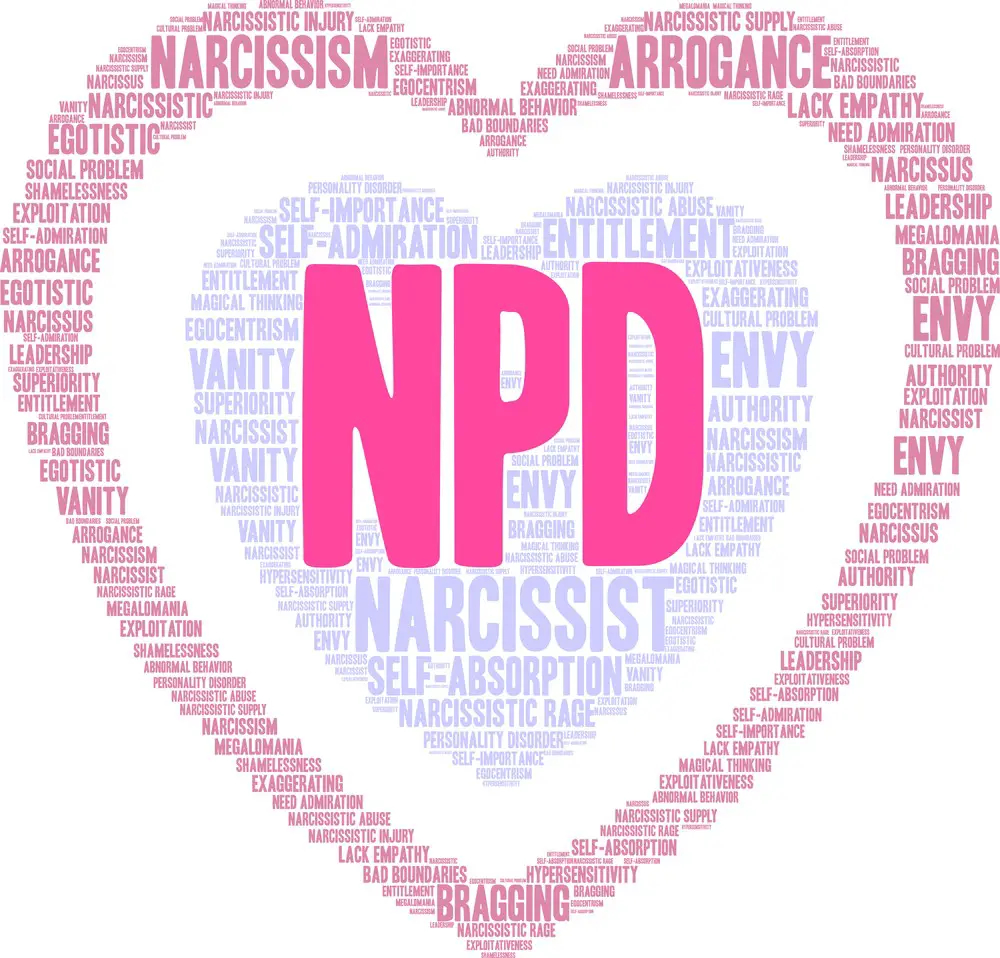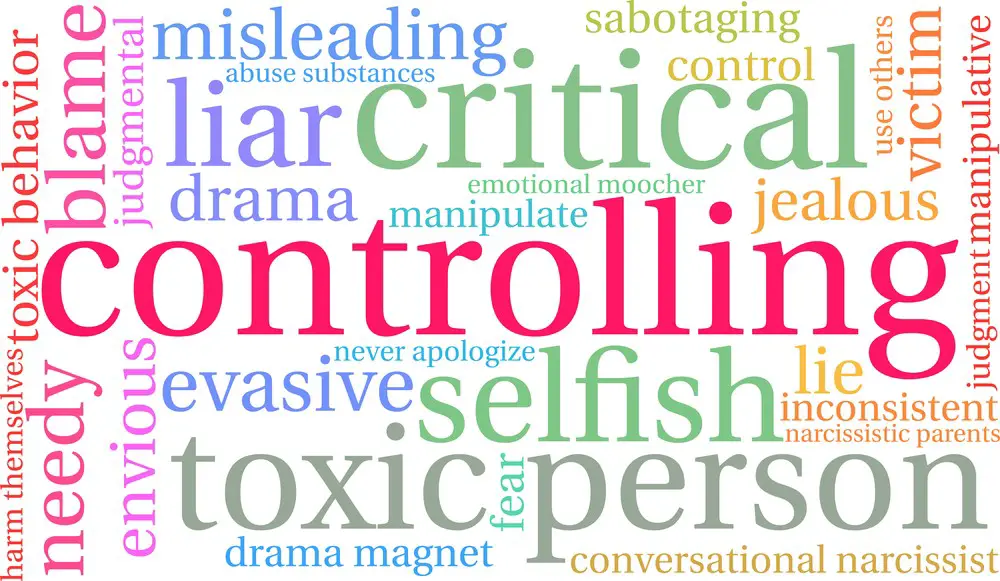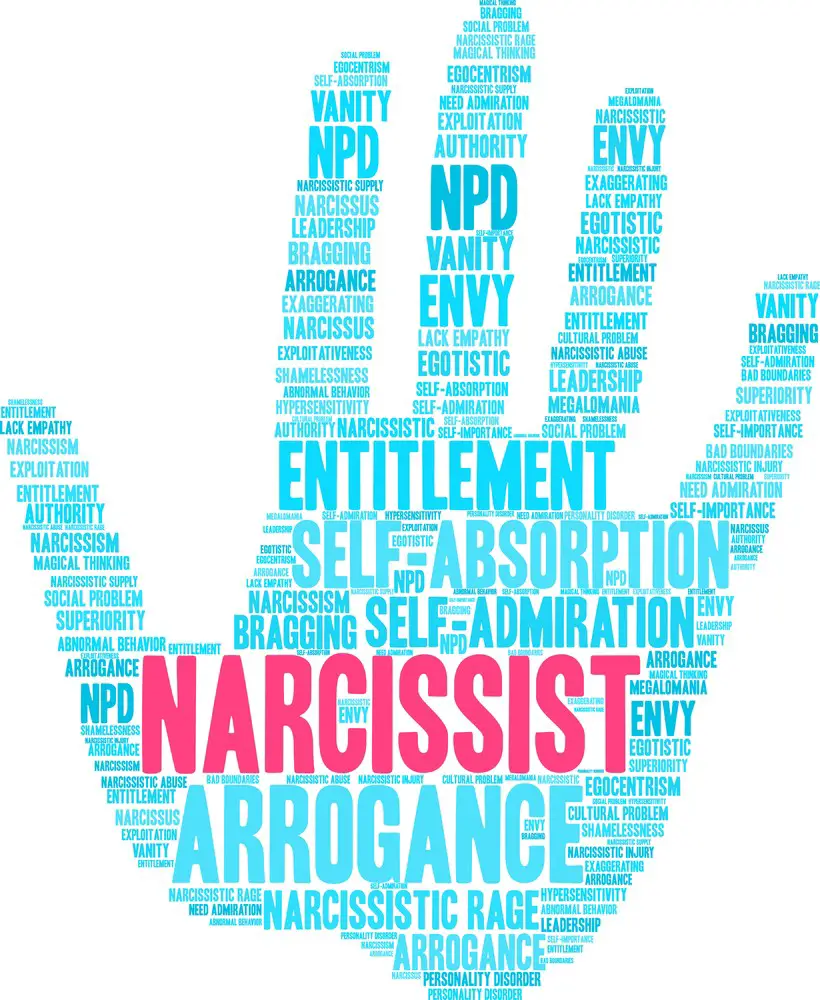As a BetterHelp affiliate, we receive compensation from BetterHelp if you purchase products or services through the links provided
Relationships can be complicated, and sometimes we wonder if our partner’s behavior is a sign of something more than individual quirks. One possibility that crosses people’s minds is whether they are in a relationship with a narcissist. This article aims to give you insights into narcissistic personality disorder (NPD), so you can better understand your situation and find answers through the Am I Dating a Narcissist Quiz.
A narcissistic personality disorder is a mental condition characterized by an inflated sense of self-importance, a deep need for admiration and attention, and a lack of empathy for others. It may make relationships difficult, as narcissists often have unrealistic expectations of themselves and others. By recognizing the behaviors and traits exhibited by a narcissist, you can make an informed decision on whether your partner may have NPD and how to address the challenges this poses to your relationship.
Key Takeaways
- Understand the implications of narcissistic personality disorder on relationships.
- Recognize signs of narcissistic traits in a partner through observation and the quiz.
- Learn how to handle a relationship with a potential narcissist for a healthy outcome.

Understanding Narcissistic Personality Disorder (NPD)
Narcissistic Personality Disorder (NPD) is a mental health condition classified under the Diagnostic and Statistical Manual of Mental Disorders (DSM-5). It is one of the four Cluster B personality disorders characterized by dramatic, emotional, and erratic behaviors. Despite its prevalence, only a mental health professional can accurately diagnose NPD.
People with NPD often exhibit a persistent pattern of grandiosity, exaggerated self-importance, and a constant need for admiration. They lack empathy and may exploit others to achieve their goals. Additionally, they frequently use manipulative and controlling behaviors to maintain a sense of superiority. It is important to note that narcissism exists on a spectrum, ranging from healthy self-esteem to pathological levels.
The criteria for diagnosing NPD, as listed in the DSM-5, include the following:
- A grandiose sense of self-importance
- Preoccupation with fantasies of unlimited success, power, brilliance, beauty, or ideal love
- Belief that they are special and unique and can only be understood by or associated with equally special or high-status people
- A need for excessive admiration
- A sense of entitlement, expecting special treatment
- A tendency to exploit others for personal gain
- Lack of empathy and unwillingness to recognize the feelings and needs of others
- Envy of others, or belief that others are envious of them
- Arrogant, haughty attitudes or behaviors
Although NPD is a lifelong condition, certain factors such as genetics, culture, and childhood experiences may contribute to developing narcissistic behaviors. Treatment often involves psychotherapy that focuses on helping the individual gain insight into their behavior patterns, develop empathy, and establish healthier ways of communicating and connecting with others. In summary, understanding NPD involves recognizing its characteristics, diagnostic criteria, and potential treatments, while it is essential to consult a mental health professional for a proper diagnosis.

Recognizing Narcissistic Traits in a Partner
Sense of Entitlement and Self-Importance
A key trait to look for in a narcissistic partner is a sense of entitlement. These individuals typically have an inflated sense of self and believe they deserve special treatment. They may constantly insist on having the best or exhibiting grandiose behavior in social situations. Additionally, they tend to exaggerate their achievements and talents, often seeking admiration and validation from others.
Narcissists may also gravitate towards high-status people, using these connections to elevate their perception of themselves. In relationships, their entitlement can manifest as controlling behavior, often undermining their partner’s needs to satisfy their own.
Lack of Empathy and Emotional Manipulation
Another red flag for narcissism is a lack of empathy. Narcissists typically have difficulty understanding or caring about other people’s feelings, emotions, and needs. As a result, relationships with narcissists are characterized by an emotional imbalance, where the narcissist’s needs dominate those of their partner.
Emotional manipulation may also be evident in a narcissistic partner’s behavior. They can maintain control and power by exploiting a partner’s vulnerabilities and insecurities. This manipulation can take various forms, such as constant criticism, gaslighting, or even withholding affection to maintain control.
Need for Constant Admiration and Attention
Lastly, a narcissist often requires constant admiration and attention from their partner. They may always need praise, affirmations, and validation, reflecting their low self-esteem. Simultaneously, they tend to be envious of others’ achievements and easily threatened by any perceived challenges to their superiority.
In relationships, this incessant need for admiration can manifest as jealousy or possessiveness, leading to feelings of unease in their partner. Repeatedly placing themselves at the center of attention, narcissists often leave little space for their partner’s needs and desires. Careful observation of these traits can help in identifying a potentially narcissistic partner.
Common Behaviors in Narcissistic Relationships
Controlling and Manipulative Communication
In a narcissistic relationship, one partner often exhibits controlling and manipulative behavior. They may belittle the other person’s opinions, ignore their emotions, and demand special treatment. A narcissistic partner may use conversation to assert their power and superiority, often leaving the other person feeling invalidated and uncomfortable.
Idealization, Devaluation, and Discarding
Narcissists tend to follow a pattern of idealizing their partner, devaluing and ultimately discarding them. At first, they may compliment their partner, emphasizing their beauty and uniqueness. However, once the narcissist becomes more comfortable in the relationship, they show envy and resentment, leading to an emotional and empathetic disconnect. This pattern often results in the narcissistic partner discarding the relationship when they no longer receive the admiration they crave.
Isolation from Friends and Family
A common behavior of narcissistic partners is to isolate their partner from friends and family. They may create boundaries or negatively comment about the other person’s support network, ultimately removing any sense of comfort or emotional safety. Narcissists seek to be the center of attention and want to ensure dominance by eliminating external sources of support and validation for their partners.

Taking the Am I Dating a Narcissist Quiz
Purpose and Value of the Quiz
The Am I Dating a Narcissist Quiz is an informative diagnostic tool, allowing individuals to gain insight into their dating partners’ possible narcissistic tendencies. It’s not meant to provide therapy or treatment, but it can help identify red flags in a relationship. When dating someone who displays potential signs of narcissism or histrionic personality disorder, it’s essential to maintain self-worth and prioritize one’s feelings and emotional well-being.
Common Questions and Considerations
When completing the quiz, users may come across questions focusing on empathy, grandiosity, and the sensitivity of their partner. Some examples of quiz questions include:
- How often does your partner show genuine empathy for your feelings?
- Does your partner frequently fantasize about success, power, or perfect love?
- Is your dating partner overly sensitive to criticism or negative feedback?
Each question serves a purpose in evaluating whether someone may be dating a narcissistic person. By analyzing a dating partner’s ability to empathize with others, it provides a deeper understanding of how capable they are of forming meaningful connections. Questions about grandiosity and sensitivity are also valuable indicators, as they reveal how much a partner may exhibit self-importance or struggle to handle rejection.
It is important to remember that the Am I Dating a Narcissist Quiz is not a definitive diagnostic tool or a substitute for professional help. If the quiz results suggest the presence of concerning characteristics, seeking guidance from a clinical psychologist is recommended.
If therapy is not an option, one should be prepared to consider possibly ending the relationship to protect their confidence and mental health. Recognizing the signs of narcissistic behavior is essential in navigating the dating world and maintaining healthy connections.

Am I Dating A Narcissist Quiz
Are you dating someone who exhibits narcissistic personality traits? The following quiz will help you evaluate if your partner exhibits signs of narcissism. Please answer each question as honestly as possible, remembering that many people can exhibit narcissistic traits occasionally. After completing the quiz, consider seeking professional advice or guidance.
Questions
1. How often does your partner show genuine empathy for your feelings?
A. Always
B. Often
C. Rarely
D. Never
2. Does your partner frequently fantasize about success, power, or perfect love?
A. Yes, all the time
B. Sometimes
C. Rarely
D. No, never
3. Is your dating partner overly sensitive to criticism or negative feedback?
A. Yes, extremely so
B. Somewhat sensitive
C. Not very sensitive
D. Not at all sensitive
4. Does your partner’s behavior often revolve around their own needs and interests?
A. Yes, always
B. Usually
C. Occasionally
D. Never
5. Does your partner regularly make promises they can’t keep or exaggerate their accomplishments?
A. Always
B. Often
C. Rarely
D. Never
6 Does your partner take responsibility for their mistakes or blame others for their shortcomings?
A. Blames others
B. Takes full responsibility
C. A mix of both
D. Rarely acknowledges fault
7 Does your partner often appear uninterested in your thoughts, feelings, or experiences?
A. Yes, constantly
B. Sometimes
C. Rarely
D. Never
8 Is your dating partner overly concerned with how they come across to strangers and acquaintances?
A. Always
B. Often
C. Occasionally
D. Never
9 Does your partner like to be the center of attention in social situations?
A. Yes, always
B. Sometimes
C. Rarely
D. Never
10 Does your partner use people or manipulate them for their own benefit?
A. Always
B. Often
C. Occasionally
D. Never
Results: Score zero points for every A, one point for every B, two points for every C, and three points for every D answer.
A score of less than 10 suggests that your partner may not be a narcissist; however, it is important to remember that this quiz cannot diagnose someone with narcissistic personality disorder and should only be used as an informative tool. If you scored between 10-15 points, your partner likely has some narcissistic tendencies; seek professional advice for further guidance. If you scored more than 15 points, your partner is likely displaying a significant number of narcissistic traits, and it may be worthwhile to consider seeking therapy or ending the relationship.
It is important to remember that this quiz does not provide a definitive assessment of narcissism, only an indication of potential red flags. Individuals exhibiting narcissism should seek professional help to work through their issues and learn how to maintain healthier relationships.
Navigating and Addressing a Relationship with a Narcissist
In a relationship where a partner exhibits Narcissistic Personality Disorder (NPD) traits, it can be challenging to deal with their behavior. NPD is a condition on the spectrum of personality disorders characterized by an inflated sense of self-esteem, a need for praise and admiration, and a belief in their unlimited success and brilliance. To effectively navigate and address such a relationship, you must consider seeking support, setting boundaries, and deciding whether to continue.
Seeking Support and Professional Help
It’s crucial to seek support from friends, family, or even institutions such as support groups when dealing with someone on the NPD spectrum. Having a support system can aid in understanding the disorder’s complexities and guide on coping with the challenges that come with it. Additionally, involving a therapist specializing in NPD can provide valuable insights and aid in developing effective communication strategies.
Setting Boundaries and Protecting Yourself
In a relationship with someone with NPD, setting boundaries and protecting yourself emotionally, mentally, and physically is essential. Being firm about your personal needs and consistently maintaining those boundaries can help limit the impact of narcissistic behavior on your life. Remember to prioritize self-care, as emotional well-being is crucial in any relationship.
Making a Decision about the Relationship
When in a relationship with someone with NPD, you may face an idealized version of love that can be hard to maintain or achieve. It’s vital to objectively evaluate whether the relationship can progress to a healthy balance of give and take. Be honest with yourself about your partner’s ability to recognize their need for help and willingness to address their NPD. Ultimately, you will need to determine if the relationship positively contributes to your life, or if it is better to move on in pursuit of healthier connections.

Frequently Asked Questions
How do narcissists treat partners?
Narcissists often treat their partners with a lack of empathy and understanding. They may manipulate their partners to boost their self-esteem and control them differently. Narcissists often expect constant attention and admiration from their partners and can be emotionally distant.
What are the red flags?
Red flags of dating a narcissist include excessive self-image, the constant need for admiration, lack of empathy, manipulative behavior, and a sense of entitlement. Additionally, they may be overly critical, show extreme jealousy, and have a pattern of broken relationships.
Is my boyfriend a narcissist?
If he displays narcissistic traits such as a grandiose sense of self, lack of empathy, manipulation, and a constant need for admiration, there’s a possibility he might be a narcissist. However, observing these traits alone does not guarantee he is one. Consult a mental health professional if concerned.
Is my girlfriend a narcissist?
Similar to a boyfriend, if your girlfriend shows traits like an inflated sense of self, lack of empathy, manipulative behavior, and constant need for admiration, she might be a narcissist. It is crucial to consult a mental health professional for a better evaluation.
What type of narcissist is he/she?
There are different types of narcissism, including grandiose, vulnerable, and communal narcissists. Knowing the specific traits of each type can help identify which category your partner falls into. However, a mental health professional should be consulted for proper diagnosis and guidance.
Narcissistic abuse signs?
Narcissistic abuse often includes emotional, psychological, or physical manipulation. Signs include belittling language, gaslighting, excessive criticism, isolation from friends and family, and a persistent feeling of walking on eggshells around the narcissist. If experiencing these signs, seek support from a mental health professional or counselor.
- How Having Cybersecurity Protection Helps You Relax - April 25, 2025
- 8 Reasons Why Spending Time Outside Calms You Down - April 25, 2025
- 5 Helpful Ideas for Managing Stress During a Plumbing Emergency - April 24, 2025
This site contains affiliate links to products. We will receive a commission for purchases made through these links.



